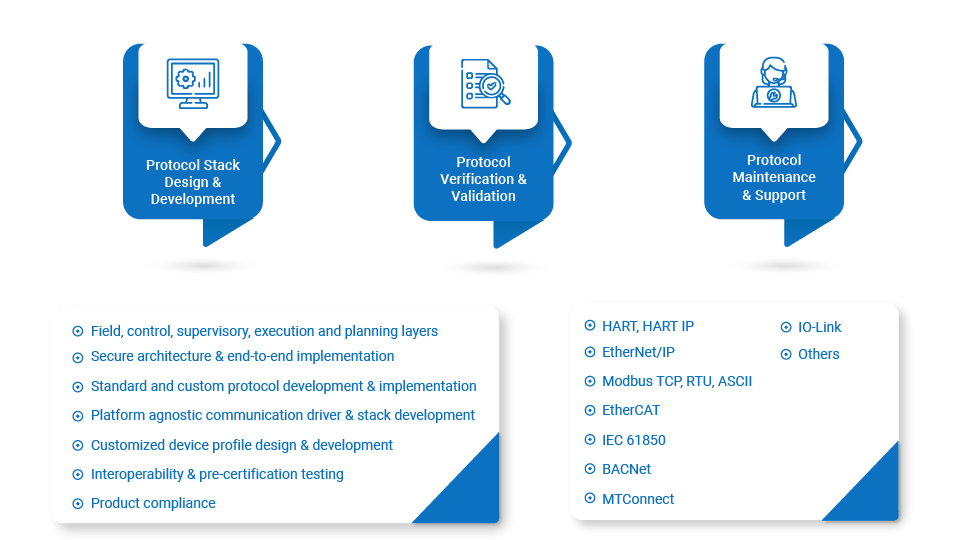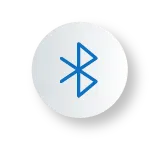Introduction
The ecosystem of an industrial enterprise encompasses a diverse range of devices, machines, and applications, which are expected to communicate with each other irrespective of their makes, communication methodologies, etc. This calls for integrating the essential set of industrial communication protocols into the system to enable this communication.
Be it quick responsiveness, message accuracy, time sensitivity, or compatibility with the existing systems, the manufacturers of industrial devices or components need to address all the above criteria and more by offering a range of connectivity solutions along with the core product. However, it requires specific protocols expertise, skills, and experience to integrate connectivity support in hardware and software.
Integrating the right connectivity solutions into the industrial systems demands a thorough understanding of the domain and expertise to add value at each step. Therefore, it is best to rely upon a technology partner that can convert the connectivity requirements into potential value propositions.
The Different Layers of Industrial Networks
Field Layer
Supervisory Layer
Control Layer
Execution and Planning Layer
We at Utthunga have a team of experienced professionals to develop customized hardware and software for your industrial connectivity needs. Our development capabilities include popular industrial communication protocols such as HART, FF, PROFIBUS, PROFINET, Modbus, EtherNet/IP, etc. in the Field and Control layer. We are one of the premier OPC based development company providing connectivity solutions from the field level to the execution level and beyond to the enterprise/cloud layer also.
Why Industrial Protocols Services are Required
In order to meet the demand for high-speed connectivity between industrial systems, we are also witnessing transition to the faster Ethernet based communications protocols. With numerous protocols, each with their unique capabilities and limitations flooding the industrial communications market, we at Utthunga help you to adopt and implement the communication protocol of your choice that best meets your needs.
Industrial Protocol Implementation Process

Utthunga's Industrial Protocol Services

Protocol Stack Design & Development
- HART, HART IP
- EtherNet/IP
- Modbus RTU, TCP/IP, ASCII
- EtherCAT
- IEC 61850
- BACNet
- MTConnect
- IO-Link
- Others on demand
We also provide comprehensive feasibility study to determine the success potential of implementing a new communication protocol for your existing products.
Our services also include protocol stack porting and device application integration for existing products, customized device profile design and development. We are also a leading service provider on the popular industrial automation standards such as FDT, FDI, HART, and OPC.

Protocol Maintenance & Support

Protocol Verification & Validation
Why Utthunga for Industrial Protocols?
We support the following physical layers also to implement and optimize your connectivity solutions

PAN
Bluetooth 5, Sub Ghz, RF

LAN
Ethernet, WIFI

WAN
Cellular, 5G, NBIOT, LORA

FAN
Wireless HART, ISA100

Wired Interfaces
FAQs
1. How do instruments and controllers communicate in a process control?
2. What to consider when planning, designing and implementing an industrial communication network?
- Reliable network structure
- Robust security protocols
- Transparency in network management
- Remote access to machines
- Integration with cloud infrastructure
- Personnel and machine function safety
- Access to devices through HMIs, mobiles etc.
